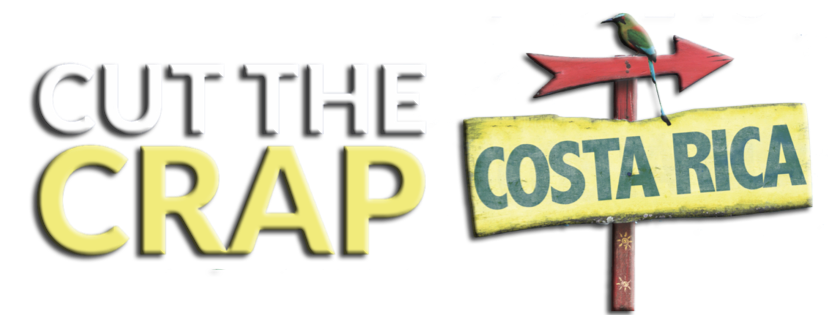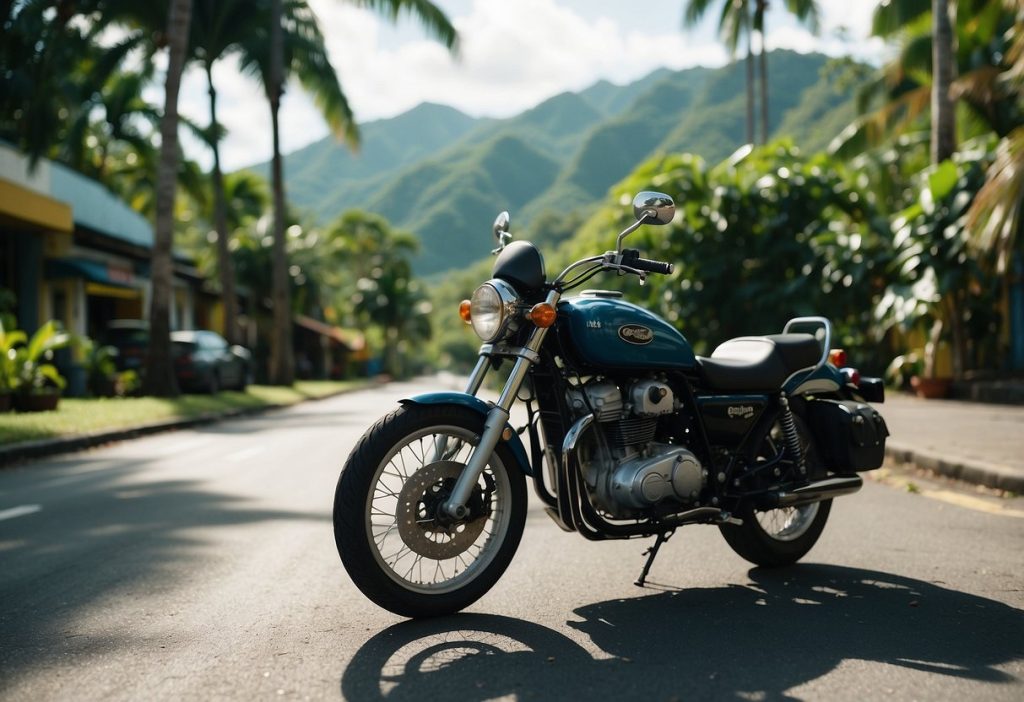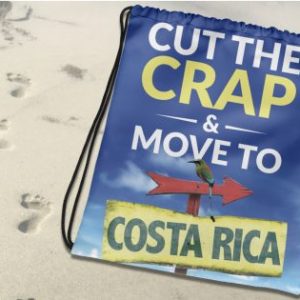Buying a motorcycle in Costa Rica opens doors to a world of adventure and freedom. Whether we are traveling along the Pacific Coast or exploring the lush rainforests, having our own motorcycle allows us to fully immerse in the rich culture and natural beauty.
In Costa Rica, the process of purchasing a motorcycle can differ significantly from what we may be accustomed to back home. We'll find unique regulations and requirements that we need to be aware of. Having the right information will make our buying experience smoother and more enjoyable, helping us hit the open road sooner.
Exploring the diverse terrains of Costa Rica on a motorcycle offers an unmatched experience. We can journey from the bustling cities to serene beaches in no time, creating unforgettable memories along the way. Owning a motorcycle not only offers convenience but also enriches our travel experience in this vibrant country.
Understanding Costa Rican Traffic Laws and Requirements
To navigate the roads of Costa Rica on a motorcycle, we need to be aware of specific legal requirements, insurance regulations, and licensing procedures. Our goal is to ensure a safe and lawful riding experience in cities like San Jose and beyond.
Legal Considerations for Motorcycle Ownership

Costa Rica's traffic laws dictate that motorcycles must comply with all safety and security regulations. These regulations include wearing a helmet and having a functioning set of lights and indicators. A reflective gear strap is not just used for safety and visibility; it's a requirement.
We should also be aware that motorcycles need to undergo an annual inspection, known locally as DEKRA, to ensure they meet roadworthiness standards. Additionally, carrying a valid passport, driver's license, and vehicle registration is obligatory while riding.
The Essentials of Motorcycle Insurance
In Costa Rica, motorcyclists are required by law to have basic insurance, which covers personal liability. This insurance, known as SOA (Seguro Obligatorio de Autos), is mandatory and provides coverage for injuries to third parties in the event of an accident.
For broader coverage, we might consider additional policies from private insurers that cover theft, damage, and personal injury. Notably, policy premiums can vary significantly, so it's beneficial to compare options from different providers.
Acquiring a Motorcycle License in Costa Rica
To legally ride a motorcycle, we must obtain a specific motorcycle license, referred to as an A3 license. Obtaining this license involves several steps, starting with passing a written test on Costa Rican traffic laws. It depends on the country you are from. If you are visiting or on a tourist visa, you may be able to use your license from your
Following the written exam, a practical riding test demonstrates our ability to safely operate a motorcycle. The testing process takes place in designated locations, primarily within major cities like San Jose. It is also crucial to provide proof of residency or a valid tourist visa, along with a medical evaluation, as part of the process.
The Buying Process: Dealerships and Purchases

Buying a motorcycle in Costa Rica involves careful consideration of model selection, detailed costs analysis, and precise documentation handling. We must navigate the local dealership landscape to find the best deals and ensure proper title transfer.
Selecting the Right Motorcycle
When selecting a motorcycle, we should consider factors such as brand reliability, availability of spare parts, and our personal riding needs. Brands like Honda are popular due to their durability and widespread service network.
Visiting multiple dealerships helps us compare models and prices. Test riding a motorcycle gives us firsthand experience with its performance. Asking for user reviews and expert opinions can also guide us in making a well-informed decision.
Make sure to check marchamo requirements and how they impact our choice. This annual road tax is crucial for legality and adds to the motorcycle’s running costs.
Costs and Prices of Motorcycles
Prices in Costa Rica can vary significantly depending on the motorcycle's brand, model, and condition (new or used). Honda motorcycles, for example, are known for being cost-effective in the long run but might have higher initial prices.
We should be aware of hidden costs such as import taxes, dealership fees, and add-ons like helmets or safety gear. It’s wise to budget for these extras to avoid surprises.
Here's a quick reference for common costs:
| Item | Estimated Cost (USD) |
|---|---|
| New Motorcycle | $2,000 - $15,000 |
| Used Motorcycle | $800 - $8,000 |
| Import Taxes | 30% - 50% of value |
| Marchamo (mandatory insurance and registration) | $100 - $300 annually |
Handling Documentation and Title Transfer
Proper documentation is vital to ensure legal ownership. When purchasing, we must receive a bill of sale from the dealership. This document is essential for the title transfer process. We should also ensure that the dealership assists with the title transfer at the local Registro Nacional. This process includes updating ownership records and ensuring that all previous legal obligations are met.
Necessary documents typically include identification, proof of address, and payment receipts. It's best to verify the exact requirements with the dealership ahead of time to streamline the process.
Practical Tips for Motorcycle Riding in Costa Rica

Riding in Costa Rica requires preparation for diverse terrain, unpredictable weather, and ensuring safety on the varied roads. It's essential to know how to navigate through the unique conditions and maintain your motorcycle efficiently.
Navigating Through Terrain and Climate
Costa Rica's terrain ranges from coastal roads to mountainous paths, all of which can be affected by weather. During the rainy season, roads may flood and become muddy, especially near rivers.
We suggest carrying an updated map or a GPS device. The coastal and rural areas are prone to potholes, so riding a dual-sport or adventure motorcycle can be advantageous. Wildlife crossings are common, so remain alert at all times.
Maintenance and Fuel Considerations
Regular maintenance is critical when riding in Costa Rica. Dusty and wet environments can affect your motorcycle's performance. Regularly check the chain, brakes, and tires.
Fuel stations are more frequent in urban areas compared to rural ones. It's smart to keep the tank topped up and consider carrying extra fuel if you're traveling off the beaten path. Make sure your motorcycle has a sturdy skid plate to protect the engine from debris.
Essential Gear and Safety
Wearing the right gear is vital for safety. A helmet is mandatory and should be of high quality. Full-body protective gear, including gloves, jackets with armor, and boots, are recommended due to the unpredictable terrain.
Carry a first-aid kit and a hydration pack to stay hydrated in the heat. Familiarize yourself with local traffic laws, and always ride defensively. We recommend carrying a small tool kit for minor repairs and a waterproof pouch for documents.
Exploring Costa Rica on Two Wheels
Costa Rica offers an incredible opportunity for motorcyclists to experience diverse landscapes, vibrant culture, and hidden gems not accessible by regular tour buses. From coastal highways to mountain trails, the country invites exploration at your own pace.
Essential Routes and Destinations
Costa Rica's Pacific Coast is ideal for those who love beach scenery and relaxed vibes. One must-see route runs from Tamarindo to Mal País, offering stunning views and charming surf towns. The roads are generally well-paved, but be mindful of occasional potholes.
For a more rugged experience, ride through the Central Valley and explore the volcanic mountain ranges near Arenal and Monteverde. This route features lush jungles, impressive waterfalls, and opportunities to visit hot springs. Make sure to visit national parks like Arenal Volcano National Park and Monteverde Cloud Forest Reserve.
If you're looking to venture off the beaten path, consider a journey to the Nicoya Peninsula. The roads can be challenging and rural, but the secluded beaches and small towns like Santa Teresa offer a unique experience of Costa Rica's pura vida lifestyle.
Rentals vs. Ownership for Short-Term Travelers
For short-term travelers, renting a motorcycle is generally more convenient and cost-effective than ownership. Rental companies like Wild Rider and Adventours Costa Rica offer a variety of bikes, from dual-sport to cruisers. Most rentals include essential gear and insurance, although a substantial deposit may be required.
Renting allows flexibility without the hassle of vehicle registration or dealing with Costa Rican bureaucracy. However, it's essential to check the bike's condition and understand the rental agreement thoroughly. While renting offers freedom, those considering a long-term stay might find purchasing a bike more economical eventually.
Rent a motorcycle for just a few days or up to a month, while those staying longer might also consider complementary rentals like a Ford van or car for a change in pace or for when a motorcycle isn't practical.
Joining Motorcycle Tours and Communities

Participating in organized motorcycle tours can enhance your experience. These tours provide local guides and structured itineraries.
Tours often include meals, hotel stays, and pre-planned routes, taking the stress out of travel. Companies like Costa Rica Motorcycle Tours and Tierra Adventure offer packages tailored to various riding skills.
Joining local motorcycle communities can also be beneficial. Online groups and local clubs can provide valuable tips, route suggestions, and social opportunities.
Sometimes, these groups organize group rides, offering companionship and safety in numbers.
Exploring Costa Rica with these tours and communities adds a layer of assurance. This is especially true in remote areas where public transportation is limited and police assistance is sporadic.
Showing 1–8 of 27 resultsSorted by popularity
-
Sale!
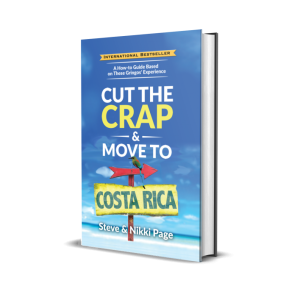
#1 Bestseller: Cut the Crap & Move to Costa Rica – Hardcover Sale!
Original price was: $32.08.$22.47Current price is: $22.47. Add to cart -
Sale!
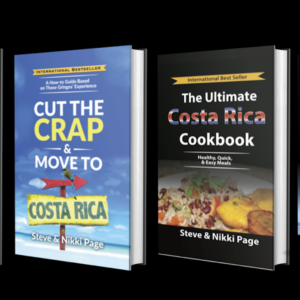
Costa Rica Travel Guidebooks: Bundle of #1 Worldwide Bestsellers
Original price was: $188.88.$136.33Current price is: $136.33. Add to cart -
Sale!
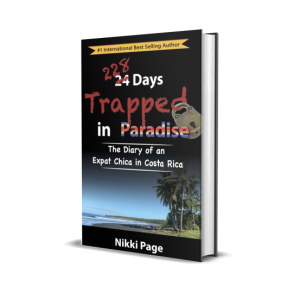
228 Days Trapped in Paradise The Diary of an Expat Chica in Costa Rica Hardcover
Original price was: $57.95.$28.97Current price is: $28.97. Add to cart -
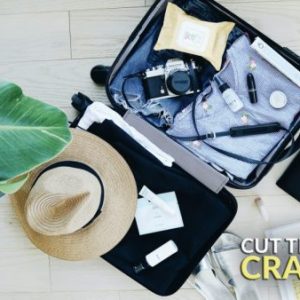
Comprehensive Packing List for Your Costa Rica Trip
$49.99 Add to cart -
Sale!

228 Days Trapped in Paradise The Diary of an Expat Chica in Costa Rica Paperback
Original price was: $31.97.$19.97Current price is: $19.97. Add to cart -
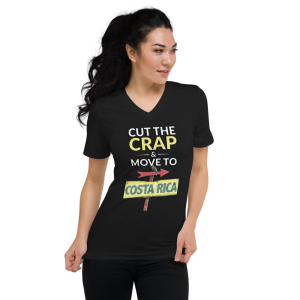
Cut The Crap Unisex Short Sleeve V-Neck T-Shirt
$24.50 – $26.50 Select options This product has multiple variants. The options may be chosen on the product page -
Sale!
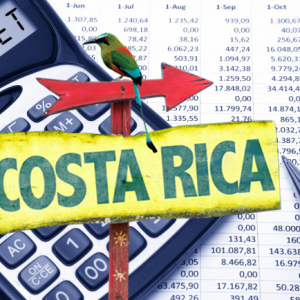
Move to Costa Rica Personalized Budget Spreadsheet & Video
Original price was: $174.97.$28.92Current price is: $28.92. Add to cart -
Sale!
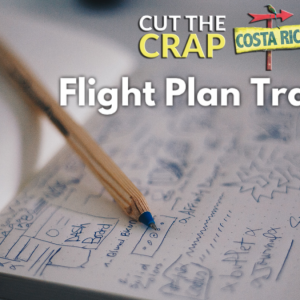
Fly to Costa Rica with Confidence: Expert Flight Plan Training
Original price was: $399.97.$243.87Current price is: $243.87. Add to cart
